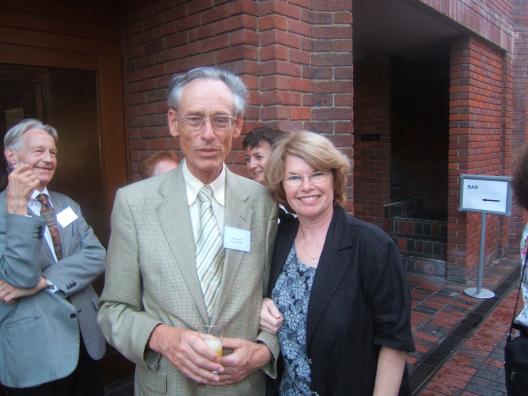2019-2020 marks the 27th academic year that Dr. Elizabeth Davis has been part of OSU’s Department of Spanish & Portuguese. Unfortunately for us, it is also her last, as she will soon begin her retirement. We are fortunate to have been able to sit with her for a thought-provoking interview to talk about her latest research and her contributions to the department, the university, and the profession.
During her time in SPPO, Dr. Davis has proven essential to advancing the department’s pedagogical and research mission. In addition to her research contributions to early modern Iberian and Transatlantic Studies, she has taught classes at both the graduate and undergraduate levels, including two courses for the Center for Medieval and Renaissance Studies, and led and served on departmental committees during critical times. Between 2014 and 2017, she served as the President of the Society for Renaissance and Baroque Hispanic Poetry, an internationally-renowned professional organization dedicated to promoting scholarship and scholarly exchange about the poetic production of the early modern Hispanic world.
Dr. Davis focuses her research on the literature and culture of early modern Spain (16th and 17th centuries), with a particular interest in poetry, the novel, and nonfiction narrative. As she explains, “I specialized in a very literature-rich field. The 16th and 17th centuries of Spain have a literary canon that is particularly abundant, so researchers have to make a deliberate decision to either work on the well-known authors from the canon, or to focus on writers that are less well known.” Dr. Davis’s first book on epic poetry had an impact on Spanish “Golden Age” studies and on Colonial Latin American Studies alike. Similarly, her current research examines accounts of 16th and 17th century Spaniards traveling back and forth between Spain and the New World. Such accounts provide valuable insight into the changes that took place as the Old World and New World collided, so to speak.

In her most recent book project, Professor Davis explores travel narratives that arose from maritime journeys across the Atlantic: “At the time, navigation was simply the fastest mode of transportation. I’m exploring the Atlantic crossing and examining five relaciones of passengers on the West Indies fleets that I look at as partial life narratives.” Because Davis examines these works through the lens of narratology, she recognizes that the writers’ perspectives always influence such accounts: “When reading these narratives, we must keep in mind that they might not necessarily be historical, in a strict sense. What we understand now is that we do not write our life narratives without carefully choosing our words. Anyone who writes an autobiography is conscious that they are creating a particular image of themselves. That’s where I’m able to connect my work, examining accounts from the 16th and 17th centuries, to current discussions of life narratives and narratology.
The study of maritime travel on the early modern Atlantic has been approached by various academic disciplines. Dr. Davis’s research is historical, but it also offers a critical examination of the writing of human stories as important cultural work. She has critically examined texts about shipwrecks, salvage operations to recover treasure lost at sea, and even the trial of a captain whose ship ran aground off the coast of Ecuador. As she notes, “historians also read these texts, but differently. Time of Catastrophe, the article I just published, is about time, space, and place. For scholars of cultural artifacts like those I am working with, it is critical to consider how elements such as these are deliberately combined in the plot line, in order to create a particular effect. That’s what I bring to the table: a focus on the way that the story is told, rather than just the presentation of the facts.” Thus, Davis’s expertise in narratology serves as an important counterbalance to the historical perspective. It emphasizes the humanistic quality within the texts and recognizes that the events described are not always dependable, as they are based on memory and colored by subjectivity.
Professor Davis has put her training as an early modernist to good use not only in preparing the graduate students who have worked with her, but in a constant updating of pedagogical strategies for teaching 16th and 17th century texts to undergraduates. She was the creator of our popular GEC course on “Don Quijote in English Translation” and a co-organizer, with the Center for Medieval and Renaissance Studies, of a special symposium to celebrate the quadricentenary of the death of Miguel de Cervantes (2016). Some of her favorite courses have been seminars on early modern Seville and Madrid, but she has also loved teaching the history of Spanish film. In many ways, she has opened up new prospects within Iberian Studies in SPPO, while preserving an important historical perspective. Her research has stretched far beyond its original focus on the lyric poetry of 17th century Spain, and the impact of her work continues to grow and influence a younger generation of scholars. Dr. Davis has been an immense asset to the OSU community. We are sorry to see her retire, but excited for her as she explores new opportunities and adventures.
